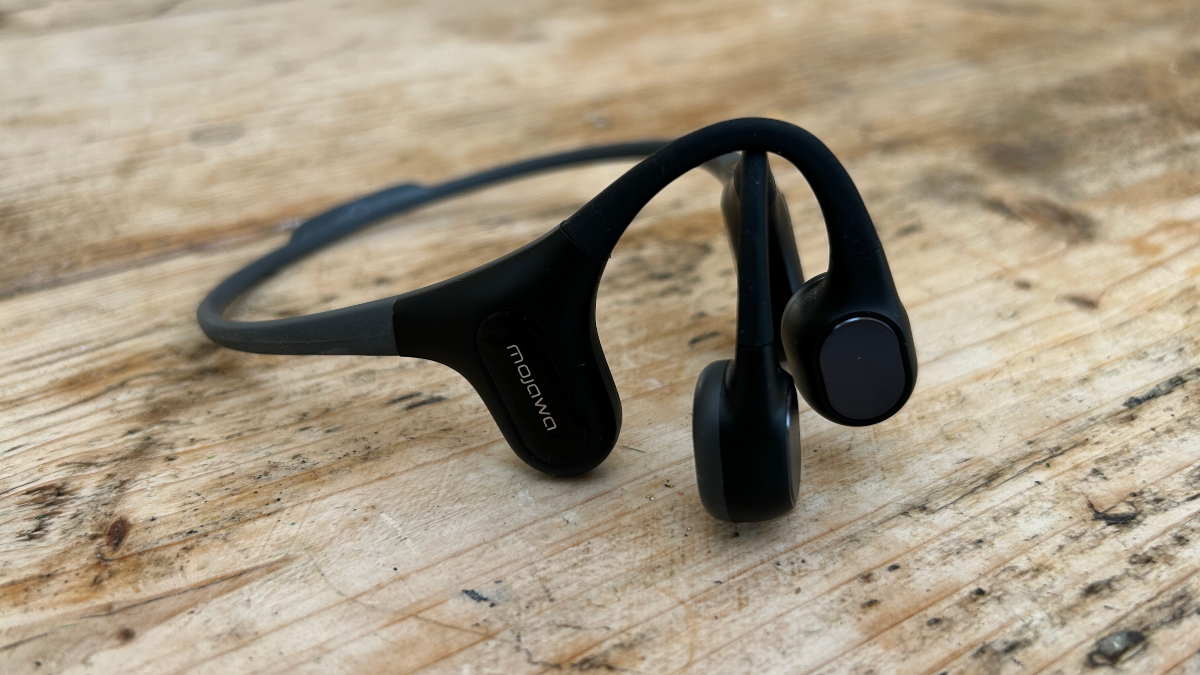Our Verdict
With Bluetooth playback and MP3 storage, and above-average sound quality, the Mojawa Run Plus are among the best bone conduction headphones I’ve tested. The only downside is that the fit can be uncomfortable if worn for long periods.
For
- Bluetooth and MP3 playback
- Good sound quality for bone conduction
- Adjustable EQ
Against
- Uncomfortable if worn too long
- Battery falls short of eight hours
- More expensive than Shokz
You can trust Coach
Business is booming in the bone conduction headphones market, with many companies taking their shot at dethroning Shokz and its range. The Mojawa Run Plus have a better claim than most to rival the Shokz OpenRun as the best workout headphones (for those who prefer an open design) because of the dual Bluetooth/MP3 playback and good sound quality they offer.
I found them to be among the best running headphones in my testing, and good for cycling and strength workouts as well. My only concerns with the Mojawa Run Plus were that the fit became uncomfortable when worn for 90 minutes or more and the battery life dropped off faster than advertised.
Mojawa Run Plus Review: Price And Availability
The Mojawa Run Plus headphones launched in June 2023 and cost $159.90, which puts them among the most expensive bone conduction headphones I’ve tested. The Shokz OpenRun Pro are $129.95, though they don’t offer MP3 playback.
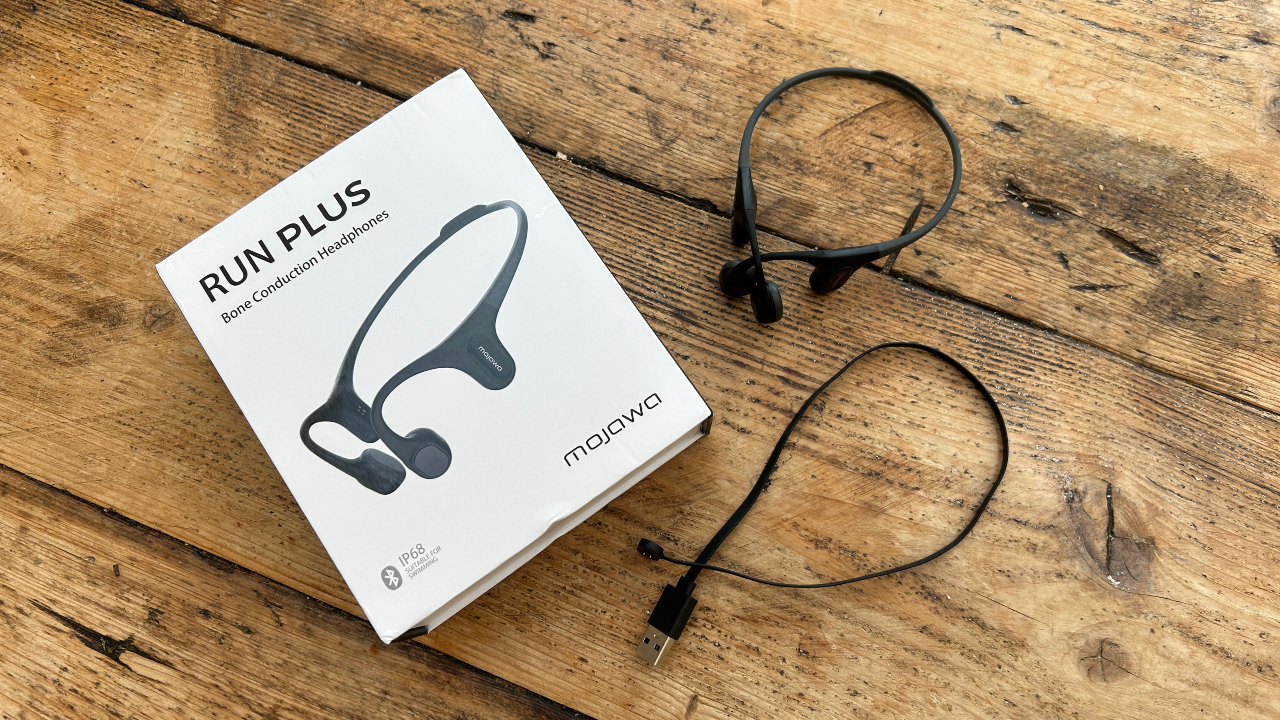
How I Tested These Headphones
I’ve been wearing the Mojawa Run Plus for a variety of workouts over the past couple of weeks, as well as for occasional use when not training. I’ve done several runs with them, plus a few indoor and outdoor bike rides and a strength workout. I’ve not tested any previous models from Mojawa, but have tested a range of bone conduction headphones (and other open headphones) from several brands, including the entire Shokz range.
Design And Fit
The Mojawa Run Plus headphones have a thin and flexible titanium alloy frame that feels robust. They are light and fit securely. It’s easy to forget you’re wearing them at first, but over longer periods I started to get discomfort on the top and back of my ear.
That is down to the design. Along with a pad that sits on your cheekbone, there is another pod that rests against the back of your ear, and I found this meant the hook over the top was pulled down on top of the ear. It’s just enough pressure to become mildly uncomfortable over time. It’s not a huge problem and I imagine the skin in those areas would toughen up if using the Mojawa headphones long-term, but they are less comfortable than the Shokz headphones I’ve used.
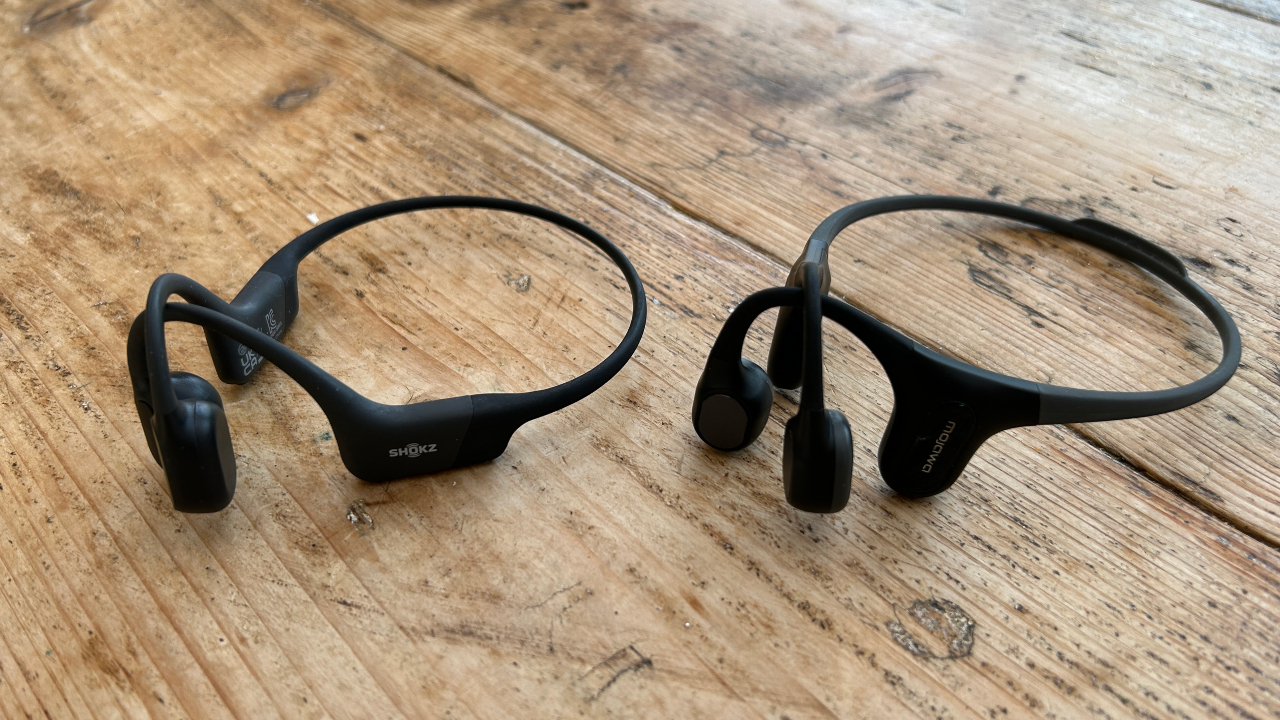
These are surprisingly small headphones, given that they offer 32GB of storage for audio, and eight hours of battery life (in optimum conditions, this comes down if you have the volume set to 100%). The headphones are IP68-rated, so fully waterproof and suitable for swimming to depths of two meters.
Sign up for workout ideas, training advice, reviews of the latest gear and more.
There is a button on the left cheekpad that is used to control playback—as well as turning the headphones on and off—while swiping on a touchpad on the pod behind your right ear raises or decreases volume, along with changing the mode between normal, shuffle and repeat if using the MP3 mode. The controls work well and are easy to use while on the run.
Sound Quality
Bone conduction headphones are unlikely to ever match the sound quality of in-ear headphones, purely because they don’t offer any passive noise cancellation and you can’t get the same bass response. However, the Mojawa Run Plus headphones sound good for open headphones, and offer more bass than I’ve come across before.
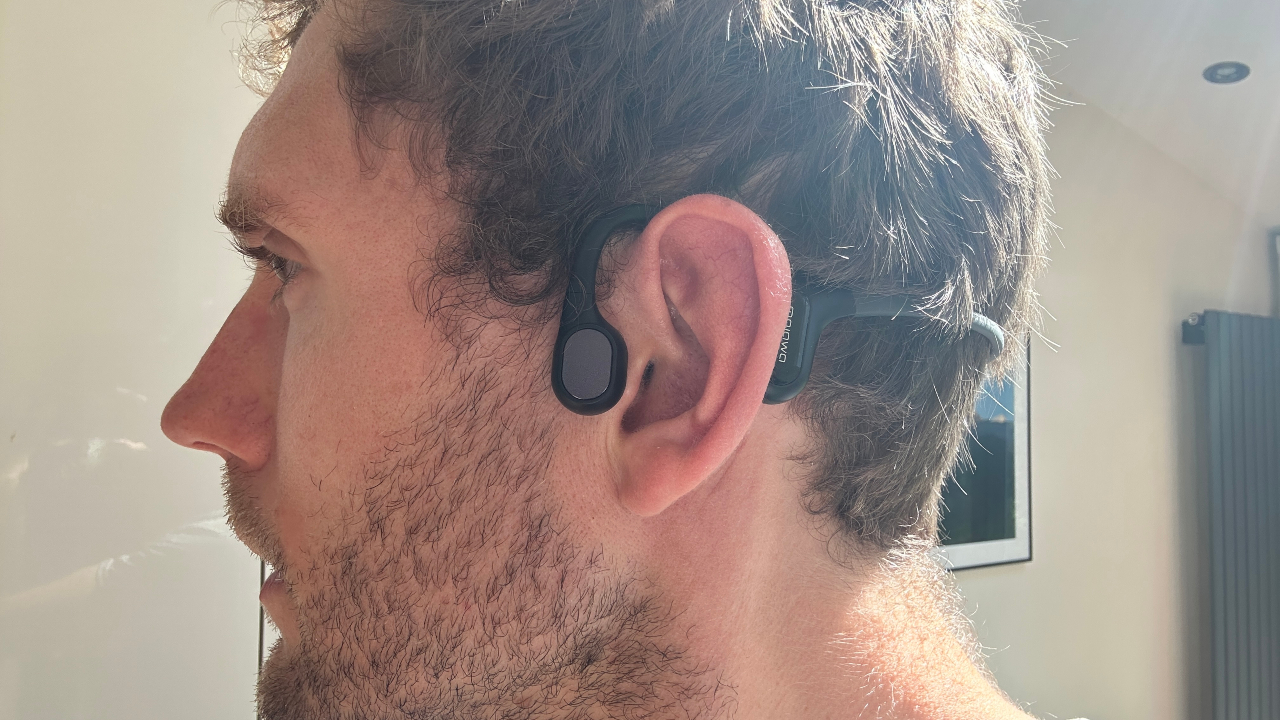
That’s helped by them having an adjustable EQ with four modes: balanced, bass boost, vocal and swim. The bass boost makes a noticeable difference and while the bass doesn’t boom with the Mojawa Run Plus, it’s more noticeable and enjoyable than on most open headphones. The only downside of this is that using the boost with particularly bassy tracks results in a lot of “cheek tickle”—a mildly irritating by-product of the vibrations you get with bone conduction headphones in general.
The headphones also have a powerful top volume, which makes them better for use when cycling on or running beside busy roads. Podcasts in particular are not completely drowned out, which I find is often the case with open buds.
Battery Life
Mojawa lists the battery life of the Run Plus headphones at eight hours, though immediately caveats that by saying that’s with the volume at 75%. As with pretty much all bone conduction headphones, I find you have to have the volume at 100% or close to it when outside, so the battery life drops to around five or six hours if that’s all you use the buds for.
There is a quick charge feature that Mojawa says will give you 1½ hours after a five-minute charge, though again this playback time comes down if you have the volume way up.
Are The Mojawa Run Plus Headphones Worth It?
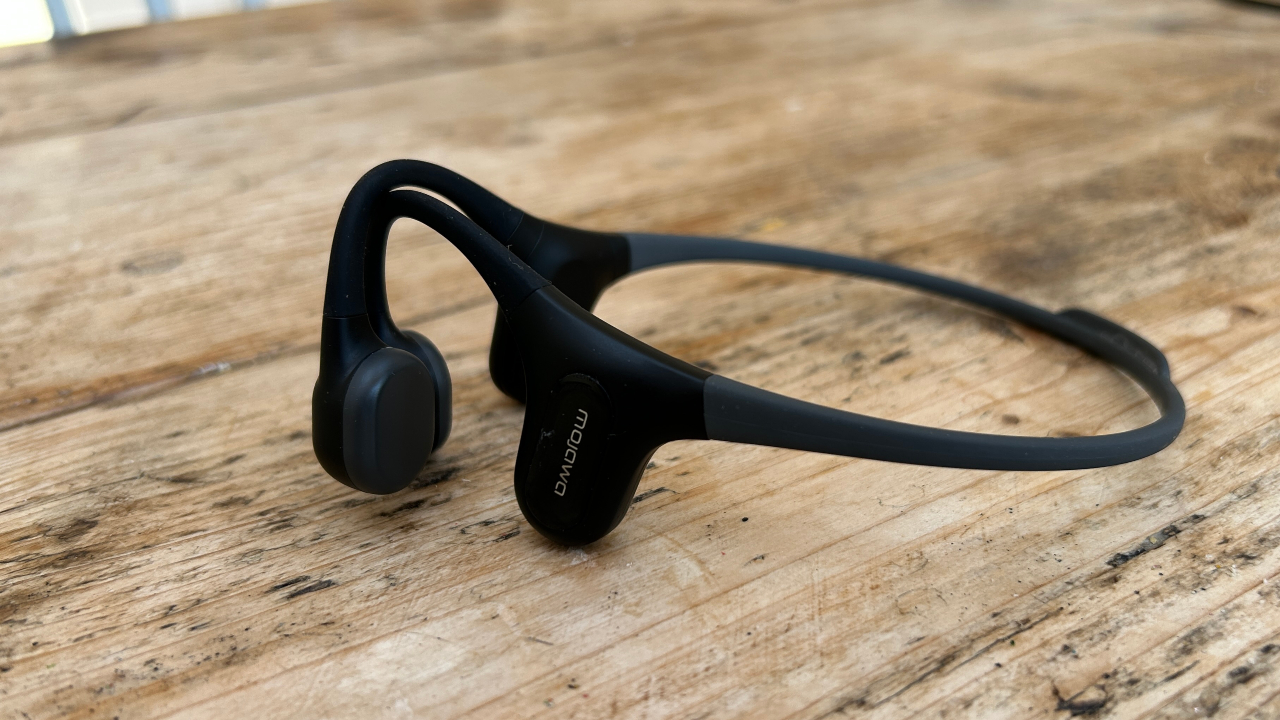
The Mojawa Run Plus are good bone conduction headphones and if you plan on using the MP3 and Bluetooth modes, they are worth their high price. People who swim as well as doing other workouts will find this dual playback mode particularly useful. I like to use MP3 playback during running races so I can leave my phone behind.
Another set of buds with dual playback are the Naenka Runner Pro, and though they are cheaper than the Mojawa Run Plus they feel less sturdy and sound worse, and the battery life drops to three hours in MP3 mode.
If you only plan on using Bluetooth then the Shokz OpenRun are a better choice, since they’re cheaper and more comfortable to wear for long periods.

Nick Harris-Fry is a journalist who has been covering health and fitness since 2015. Nick is an avid runner, covering 70-110km a week, which gives him ample opportunity to test a wide range of running shoes and running gear. He is also the chief tester for fitness trackers and running watches, treadmills and exercise bikes, and workout headphones.
